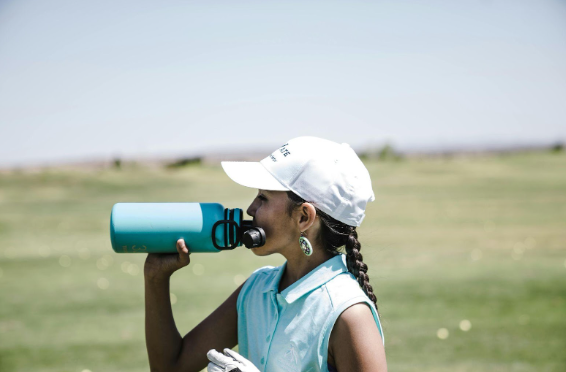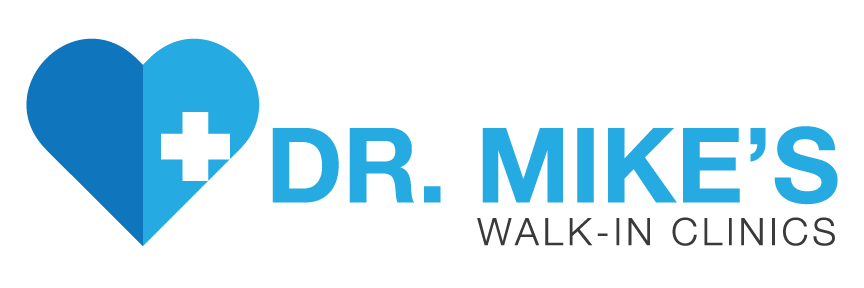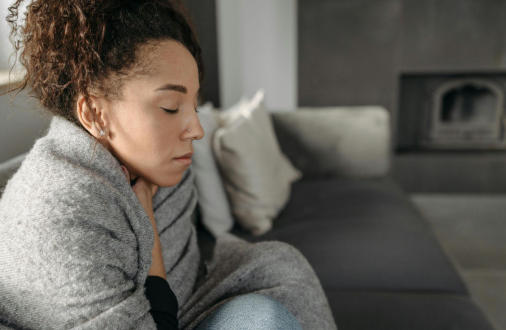Our Blog
Dehydration and Heat Exhaustion: Signs, Prevention, and When to Visit a Walk-In Clinic

When the temperatures rise, so does the risk of dehydration and heat exhaustion. If you're spending the day outdoors, exercising, or just going about your usual routine, the hot weather can take a toll on your body without much warning.
Luckily, if you understand the signs, know how to prevent heat-related issues, and recognize when it's time to seek medical help, you can make a big difference when it comes to staying safe and healthy.
What Is Dehydration?
Dehydration happens when your body loses more fluids than it takes in, often through sweating, urination, or even breathing. In warm weather or during physical activity, your body sweats to cool down, which leads to fluid loss. If you don’t replace those fluids quickly enough, dehydration can set in.
Even mild dehydration can cause noticeable symptoms like a dry mouth, fatigue, or dizziness. More severe dehydration can lead to serious complications, including kidney problems and heat-related illnesses. Your body relies on water to regulate temperature, transport nutrients, and keep organs functioning properly. When hydration levels drop, everything from your mood to your heart rate can be affected.
What Is Heat Exhaustion?
Heat exhaustion is a heat-related illness that can develop after prolonged exposure to high temperatures, especially when combined with high humidity and physical exertion. It’s a step before heat stroke, which is more serious and requires immediate emergency care. Heat exhaustion happens when your body struggles to regulate its temperature, which is tricky for it to do when it is losing too much water and salt through sweat.
The signs of heat exhaustion include heavy sweating, weakness, nausea, headache, light-headedness, and skin that feels cool and damp. In many cases, people with heat exhaustion also feel anxious or confused. It can sneak up quickly and become dangerous if not addressed.
Common Signs to Watch For
Recognizing the early symptoms of dehydration and heat exhaustion can help you take action before the situation becomes more serious. With dehydration, you might notice that you're feeling thirsty, your mouth feels dry, or your urine is darker than usual. You might also get a headache or feel sluggish and lightheaded. Children may show signs like crying without tears or fewer wet diapers.
With heat exhaustion, symptoms tend to be more intense. You might experience profuse sweating along with a rapid heartbeat or feel faint. Some people report muscle cramps or nausea. If left untreated, heat exhaustion can progress to heat stroke; the shift from one to the other can happen quickly, so early intervention is important.
How to Prevent Dehydration and Heat Exhaustion
The most effective way to prevent both dehydration and heat exhaustion is to stay ahead of the heat. Drink water regularly, even if you’re not thirsty. If you’re planning to be outdoors or engage in physical activity, start hydrating beforehand and continue throughout the day.
Wearing loose, lightweight clothing helps your body stay cool. Try to avoid being outside during the hottest part of the day, usually between 10 a.m. and 4 p.m. If you need to be outdoors, take frequent breaks in the shade or go indoors to cool off. Use fans or air conditioning whenever and wherever you can as well.
Also, pay attention to your body. If you start to feel dizzy, overly tired, or notice you aren’t sweating as much despite the heat, take it as a sign to rest and rehydrate. Don’t push through discomfort, especially if you start to feel unwell in the heat. Prevention is much easier than recovery when it comes to heat-related issues.
When to Visit a Walk-In Clinic
There are times when home remedies and rest aren’t enough. If you or someone you’re with starts showing signs of moderate dehydration or heat exhaustion and doesn’t improve after hydrating and cooling down, it’s time to seek medical care. A walk-in clinic is a convenient place to get checked out without needing an appointment.
You should visit a clinic if symptoms like dizziness, rapid heartbeat, or nausea persist. If you’re not able to keep fluids down or if you're concerned about how a child or elderly person is responding to the heat, don’t wait. Walk-in clinics can provide fluids, monitor your vital signs, and ensure that you or your loved one is on the right track to recovery.
If your symptoms worsen to the point of confusion, seizures, or a body temperature above 103°F, skip the clinic and head to the emergency room. These signs could indicate heat stroke, which requires immediate emergency treatment. For earlier signs or milder cases though, a
walk-in clinic can often provide fast, effective help and peace of mind.
Hydration Tips for Hot Weather
Drinking water might sound simple, but it’s not always as easy as it seems. In hot weather, it’s a good idea to carry a water bottle and sip throughout the day rather than waiting until you feel thirsty. Thirst is a late sign of dehydration, not an early one.
Try to avoid drinks that dehydrate you, such as those with caffeine or alcohol. If you’re sweating a lot due to exercise or outdoor work, sports drinks with electrolytes can help replace lost salt and minerals. You can also eat foods that have a high water content, like watermelon, cucumbers, and oranges, to supplement your fluid intake.
Creating a hydration routine can help you stay consistent. Drinking a glass of water with every meal, setting reminders on your phone, or even using a hydration tracking app can make it easier to stay on top of your fluid needs.
If you’re feeling run-down from the heat or showing signs of dehydration or heat exhaustion, don’t wait. At
Dr. Mike’s Walk-In Clinics, our caring providers can assess your symptoms, offer treatment, and help you recover safely.
Contact us today at one of our multiple locations, and let us take care of you!



